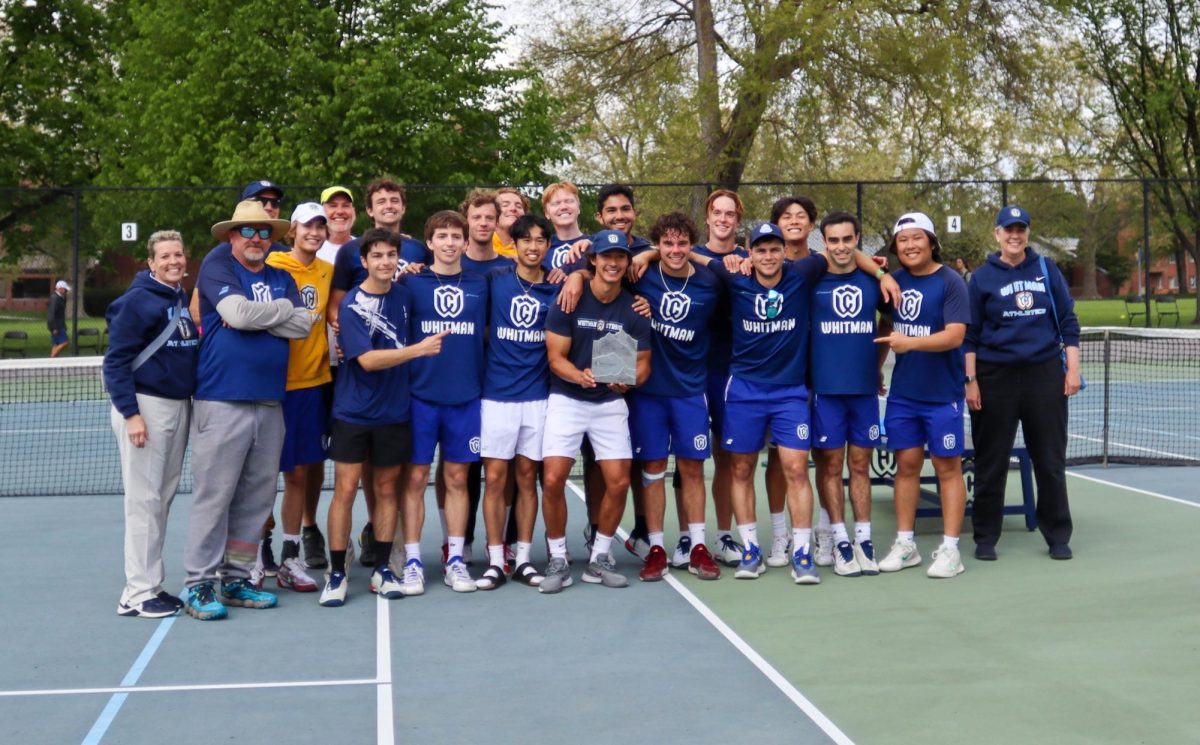You always hear about “home field advantage” in reference to the boost in performance that teams get from playing on their home turf, but how much of an effect does it really have?
If the performance of Whitman varsity teams has anything to say on the matter, it makes a big impact. Over the past three years, Whitman teams who have competed head-to-head against another team (all varsity teams except golf and cross country) have posted a 104-88-5 record at home against conference opponents and an 81-107-6 record on the road.

These records show that 54 percent of victories are at home and 43 percent are away. This means that a Whitman team is roughly 25 percent more likely to win while playing in Walla Walla than while travelling around the northwest.
This current season alone has shown a particularly tremendous increase between home and away records. Overall, the Missionaries are 28-14-1 (67 percent) on home turf and 16-26-3 (38 percent) while travelling.
The large increase in win percentage from playing at home could possibly be contributed to several factors. The athletes playing in front of their own fans, not having to travel, and playing on high quality facilities that the athletes are familiar with could all impact the outcome of the game.
First-year basketball player Meghan White believes that the Whitman fans make a strong impact on her team’s performance.
“I definitely feel our Whitman crowd aids our women’s basketball team’s success,” White said. “Nothing beats the invigorating feeling of hearing a cheering crowd as you play basketball. It pumps me and every one of my teammates up, bringing the competition to the next level.”
The strength of fan support can also be seen where one may not expect it: the pool. During a recent home swim meet, sophomore phenom Kevin Dyer found himself trailing a Whitworth opponent through most of the grueling 1,650-yard freestyle. As he started to gain on the other swimmer, the packed crowd really got behind him and helped him overtake the Pirate, winning the 17-minute race by a mere 34-hundredth of a second.
“Usually you can’t hear people when underwater, but when I started to catch the guy I really started to hear the crowd,” Dyer said. “It happened at the point in the race when I was starting to get tired and knowing that there were so many people cheering me on really pushed me through to the end.”
Some athletes, including sophomore soccer player Jed Jacobson, find that travel and the disadvantages that come with being on the road, largely contributes to teams possibly performing worse while away.
“Playing on the road is often more difficult,” Jacobson said. “Long bus trips, not-so-great food, and sharing beds may all negatively impact performance, as well as the unfamiliar location.”
While an unfamiliar location may be a disadvantage while on the road, the fact that athletes do not get to play in the quality of facilities that they are used to practicing in may exacerbate the situation. Many Whitman athletes feel that all of the Whitman facilities are superior to those of most of the other schools in the conference which could play a large role in this home field advantage.
“Whitman has one of the best, if not the best, soccer fields/complexes in the conference,” Jacobson said.
White agrees in the superiority of the venues here at Whitman.
“Sherwood Center is by far the best place to play in the Northwest Conference,” she said.
The roar of the home crowd, playing in familiar and superior facilities and not having to spend four hours stuck on a bus all add up to Whitman varsity teams having a substantial advantage when playing at home.








